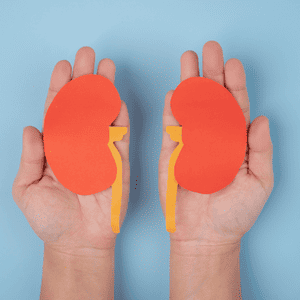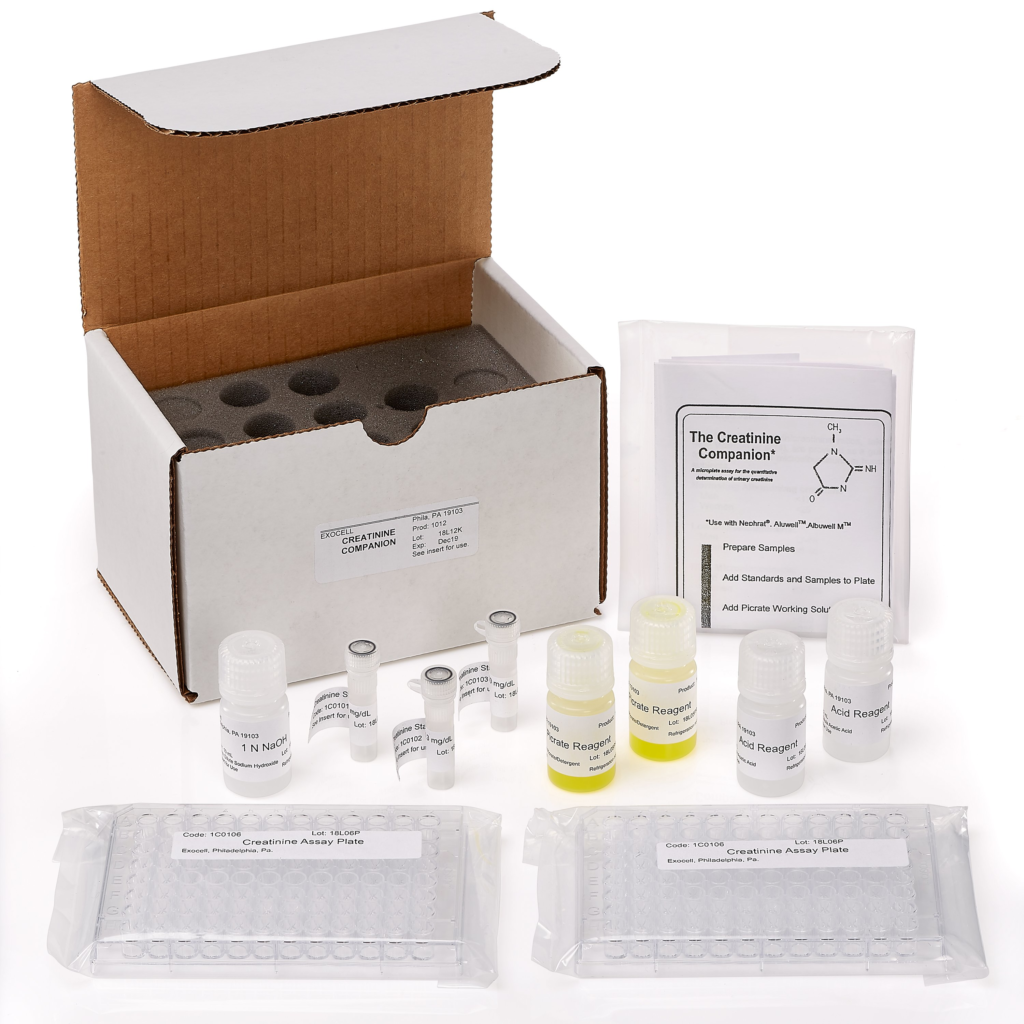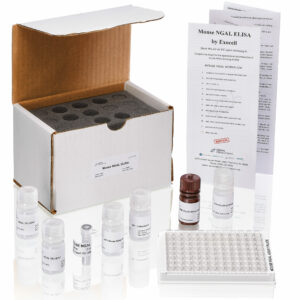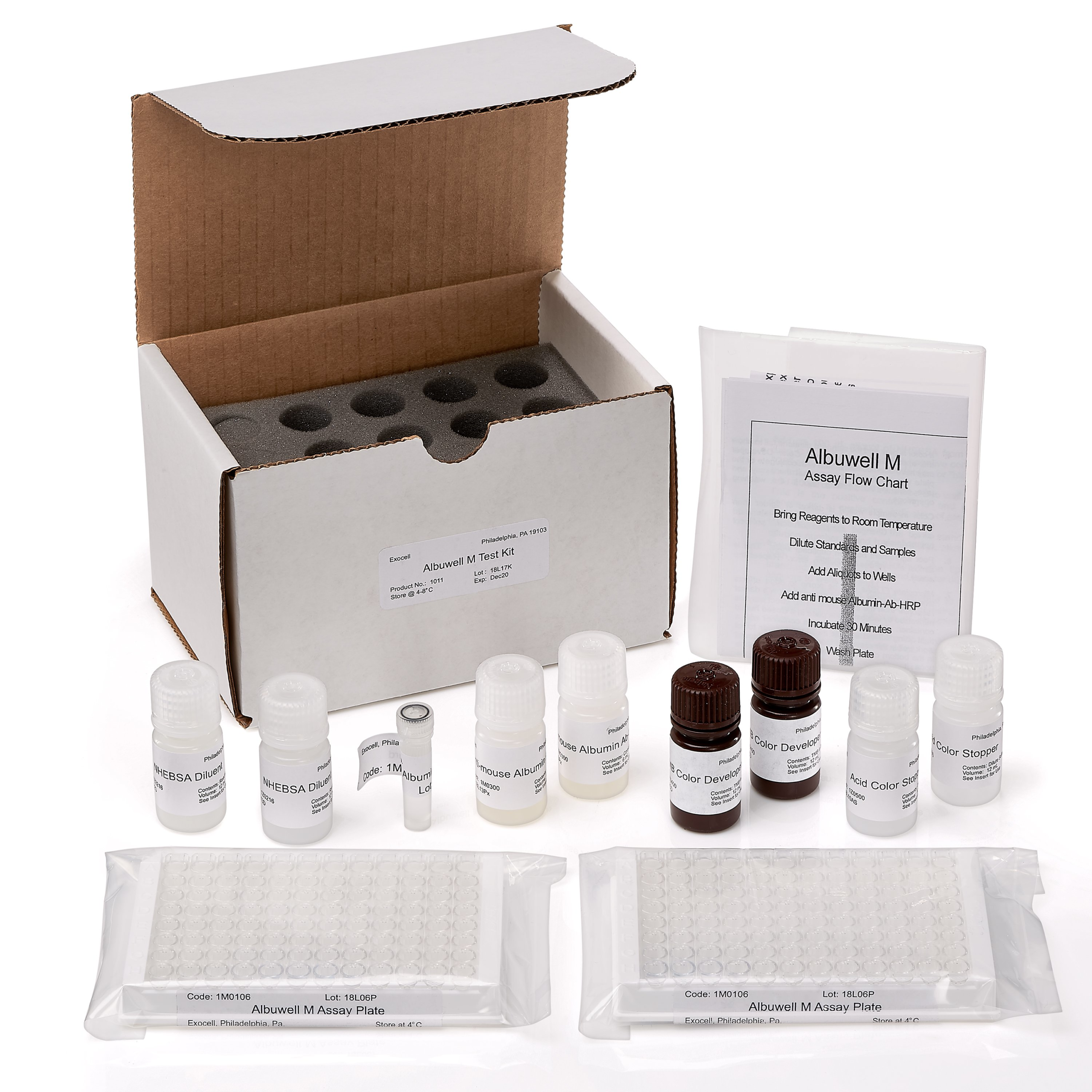
Gain insights into biology & disease with our Nephrology ELISA kits
What is Nephrology?
Nephrology focuses on the diagnosis and treatment of kidney conditions such as kidney function, kidney disease, and the preservation of kidney health. Many conditions affect kidney function, including 1) kidney diseases such as glomerulonephritis, interstitial nephritis, and polycystic kidney disease; 2) systemic conditions such as diabetes, autoimmune disease, and high blood pressure; and 3) additional factors such as medicines, diet, and exercise. Because of the increase of noncommunicable diseases, Chronic Kidney Disease is increasing worldwide; emphasizing the importance of nephrology research.
Why choose Exocell Nephrology ELISAs from Ethos?
Our high quality nephrology ELISA Kits measure a range of analytes in urine and other biofluids, all made to exacting Exocell standards. With scientific roots in nephrology dating back to Exocell’s founding in 1988 by Margo Cohen, MD. Ph.D., Exocell assays were originally developed to advance research into complications from diabetes that affect the kidneys.
From the original Albuwell ELISA and Creatinine Companion Kits, which have become the gold standard assays for microalbuminuria measurement, the analyte list has expanded to include biomarkers for other conditions that frequently co-occur with diabetes. Regardless of the analyte, each kit embodies Exocell’s (and now Ethos’) commitment to accurate and precise measurement, with reagents and assays designed to maximize quality and ease-of-use while minimizing variability. Below you can find our list of analytes.


Target Analytes
We would love to hear about the research you are conducting. If you are interested in a particular analyte, please feel free to reach out to us at [email protected]
Kidneys affected by disease leak small to moderate amounts of protein into urine, a condition called microalbuminuria. Measuring urine albumin levels provides information into the severity of kidney dysfunction.
Levels of creatinine, a protein normally present in urine, provide robust normalization to account for variations in urine concentration due to hydration status and time of day. Many measurements of urine analytes are presented as a ratio to creatinine.
Cystatin C is a small protein that is produced by cells and filtered by the glomerulus. It is reabsorbed by tubular epithelial cells and catabolized, so it does not return to the bloodstream; making it an excellent marker for GFR.
Required for normal kidney development, nephrin expression is downregulated in glomerular diseases such as diabetic nephropathy, however urinary levels of nephrin are increased. Measurement of nephrin in urine is a marker of podocyte dysfunction that may reflect the integrity of the kidney’s filtration barrier.
Neutrophil gelatinase-associated lipocalin (NGAL) is released from kidney tubular cells & neutrophils during inflammation & under stress.
Featured papers: See how Exocell ELISAs advance research
Exocell Albuwell M ELISA Kit : Blocking VEGFR-3 suppresses angiogenic sprouting and vascular network formation.Tammela T et al. Nature. 2008 Jul 31; 454 (7204):656-60. doi: 10.1038/nature07083.
Exocell Creatinine Companion:Autoimmune disease and impaired uptake of apoptotic cells in MFG-E8-deficient miceHanayama R et al. Science. 2004 May 21; 304 (5674):1147-50.
Exocell Albuwell M ELISA Kit, The Creatinine Companion: Pyruvate kinase M2 activation may protect against the progression of diabetic glomerular pathology and mitochondrial dysfunction Qi W et al. Nat Med. 2017 Jun;23(6):753-762. doi: 10.1038/nm.4328.
Featured Nephrology ELISAs

The Creatinine Companion (Creatinine Assay)
Product #: 1012
Specimen Required: Urine, 20 µl
Assay Range: 10-100 µg/ml or 1-10 mg/dl
Precision: Intra- and interassay precision of samples within the useful range have a C.V. <10% of the mean.

Mouse NGAL ELISA
Product #: 1040
Specimen Required: Urine, 100 μl
Assay Range: 0.495-1.886 μg/ml
Precision: Intrassay and interassay precision for samples within the useful range have a C.V. <10%

Albuwell M (Mouse Albumin ELISA)
Product #: 1011
Specimen Required: Urine, 10 μL
Assay Range: 0.156-10 μg/ml
Precision: Intrassay and interassay precision for samples within useful range of the assay have a C.V. < 10% of the mean.
